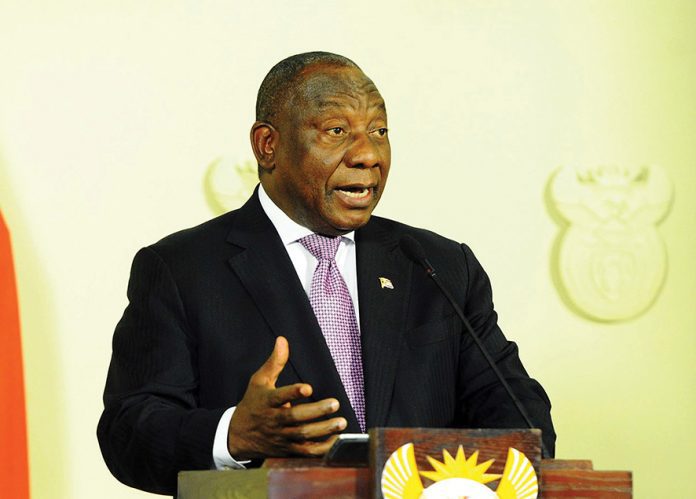Freedom Front Plus (FF Plus) has denounced President Cyril Ramaphosa’s proposed approach for using broad-based black economic empowerment (B-BBEE) as a fundamental mechanism in stimulating economic transformation.
In a statement on Thursday, FF Plus spokesperson Jacob Mulder said the approach points to a lack of political capital, adding that it is “blame-shifting” from the governing party’s appalling record in government.
“Ramaphosa’s speech was riddled with blame-shifting and completely ignored the destructive consequences of 28 years under a poor ANC government, which has the country’s economy teetering on the edge due to state capture, the bankruptcy of public enterprises like Eskom, and the collapse of municipal service delivery while unemployment is rampant,” said Mulder.
According to Mulder, sustainable economic growth can only be achieved through “investor confidence and [when] tenders and appointments are made solely on merit”. He said the redistribution of wealth paves the way for the redistribution of poverty.
“The FF Plus strives for establishing a multiparty coalition government after the 2024 elections, which will be free of the ANC’s corruption and blame-shifting … South Africa deserves better than the ANC.”
In June, Ramaphosa appointed a 14-member advisory council responsible for guiding the government on intensifying the transformation of the economy. Some of the council members include Black Business Council CEO Kganki Matabane and black business doyenne Gloria Serobe.
President of the Johannesburg Chamber of Commerce Shawn Theunissen said while the establishment of the B-BBEE Advisory Council acknowledges the slow pace of economic transformation, the lack of capacity and enforcement capability remains unresolved.
Theunissen said [at the time] that the new council must guard against being another initiative that “lacks teeth and has a little impact”.
He said economic transformation efforts have not created enough successful black industrialists, black talent in senior and executive leadership positions, enough sustainable small black businesses, or inclusive local community development initiatives.
Theunissen suggested the council employ new measures to ensure meaningful change to help black-owned small and medium enterprises (SME) to gain access to more opportunities.
These include investing in campaigns to drive the procurement of goods and services from black-owned businesses by the government and the private sector, and offering incentives for businesses that procure from black-owned small SMEs.
Ramaphosa announced on Wednesday during the inaugural Black Industrialists and Exporters Conference that a new trajectory is needed to catalyse economic transformation.
He said a lot of work is needed to expand and support black-owned businesses and added that black industrialists need bigger and better representation across the economy.
Said Ramaphosa: “As this conference recognises and celebrates the successes of the black industrialists programme, it needs also to set out what our responsibilities are – individually and collectively – to advance inclusive entrepreneurship in South Africa.
“Our black industrialists strategy is underpinned by two core commitments. Firstly, to secure greater diversity in ownership and control in the economy, which is crucial for economic dynamism and social solidarity. Secondly, a commitment to promote emerging enterprises to drive inclusive industrialisation.
“Our strategy aims to ensure that we secure greater representivity across the economy, all the while generating greater prosperity and employment.”
According to Ramaphosa, small businesses are continuously benefiting from preferential procurement by the state and receive support to grow and expand while the worker shareholder regime also continues to improve.
“Over the past six years, the Department of Trade, Industry and Competition, the Industrial Development Corporation, the National Empowerment Fund and other agencies have supported approximately 900 black industrialists. Over the past 11 years, black enterprises have been supported to the value of R55-billion.
“Estimates by the Industrial Development Corporation suggest that the socio-economic returns of this programme have been even more far-reaching. This includes supporting and creating some 55 000 jobs and adding over R160-billion to our country’s gross domestic product,” said Ramaphosa.
To read more political news and views, click here.
Follow @SundayWorldZA on Twitter and @sundayworldza on Instagram, or like our Facebook Page, Sunday World, by clicking here for the latest breaking news in South Africa. To Subscribe to Sunday World, click here.




